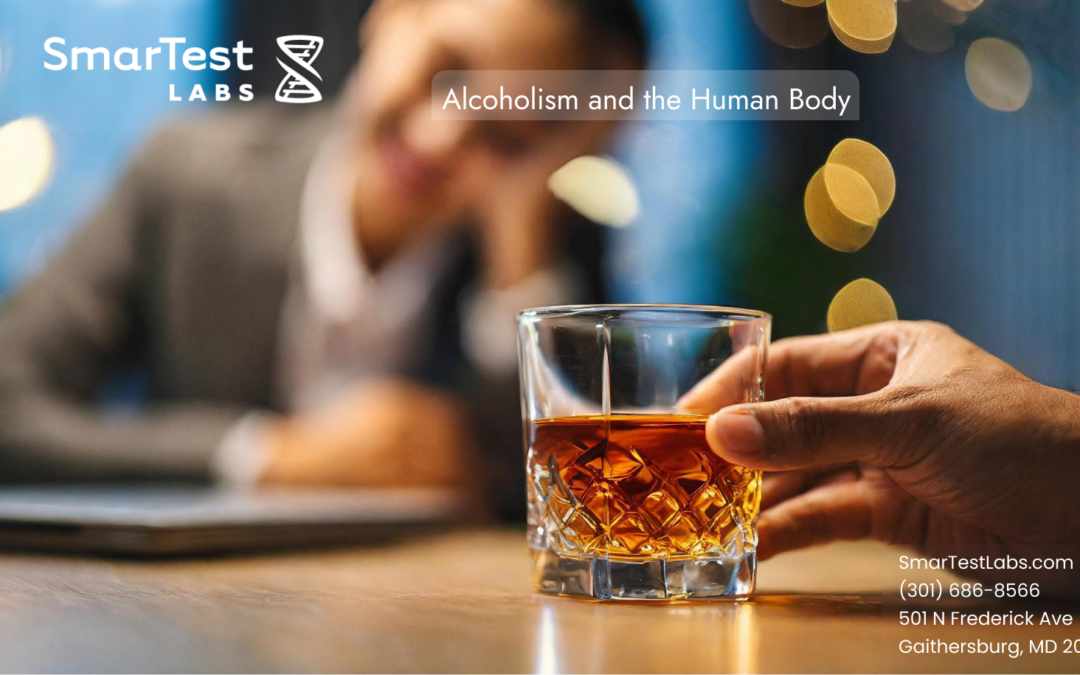Alcoholism
Alcohol the scientific term being ETG or ETOH is frequently used as a recreational drink by many in the USA. The use of alcohol must be moderated to avoid alcoholism. Often the fact that alcohol is used in many instances, there is a risk that people slip into increased alcohol use for reasons like social pressure, unintentional increase in usage, genetic pre-disposition, stress & depression etc.
What does alcohol do to the human body?
Alcohol use impacts various part of the human body in different ways. Regardless of a person being a heavy drinker or a light drinker, alcohol will have impacts on your body. The length of time a person drinks also increases the risk of alcohol impacts on the human body.
The different areas impacted are your brain, heart, liver, pancreas, cancer related diseases.
- Brain – alcohol will reduce brain communication and cause mood swings and erratic behavior. It will also reduce clear thinking and motor coordination.
- Liver – Alcohol causes cirrhosis, fibrosis, alcoholic hepatitis and fatty liver.
- Heart – causes weaking of the heart muscles, irregular heartbeat, high blood pressure and potential stroke.
- Pancreas – Causes pancreatitis which is an inflammation of the pancreas making it painful and impacts digestion.
- Colon Cancer
Cancer – Although much research is being done in this area, alcohol has been shown to increase certain kinds of cancer. The common alcohol related cancer is esophageal cancer, liver cancer, head and neck cancer, cancer of the larynx. These cancers and the studies done by the National Cancer institute show clear related patterns of alcohol consumption related to these cancers. Alcohol related deaths in 2009 were approximately 3.5% due to some related cancer.
Population Demographics and alcohol drinking impacts
Different demographic age groups are impacted differently with alcohol consumption.
Adolescents & young adults are growing individuals and their brain changes as they grow. The brain’s functioning continues into the age of mid-20s. This development is what we see and take for granted in emotional, social and other life required skills. This continues through the age of 20.
Adolescents are in the process of discovering the world around them and tend to try things that are risky like drinking alcohol. This risky behavior can lead to long term addiction, brain damage and other effects.
Alcohol use by Age (2022 – Published by NIH/NSDUH)
| Age
(years) |
Number of Individuals | Comments |
| 12 and older | 2.2 million | Alcohol use disorder lacked treatment |
| 12 – 17 | 54,000 | Received alcohol treatment |
| 18 & older | 2.2 million | Had Alcohol Use Disorder |
How alcoholism is developed
Alcoholism develops through various stages that impacts the human brain. These stages depend on each other.
Stage 1 – Is when a person drinks and enjoys the effects of the alcohol. This brain stimulation which causes habit forming which in turn stipulates the urge to have more alcohol.
Stage 2 – This stage is when a person stops drinking which in turn causes withdrawals. These withdrawals are not a comfortable feeling for individuals who then relapse into drinking again as the brain signals that the feeling is better. Drinking at this stage is more a need and not an enjoyment.
Stage 3 – This is a stage where an individual must have alcohol again. There is a constant anxiety in search of alcohol. This stage is very destructive to people as they lose coping life skills due to pre-occupation with alcohol.
Effects of alcohol on social functions
Alcohol causes social impacts including damage in personal relationships, violence, accidents, damage to the body requiring others to care for the person and many other organizational impacts like work absenteeism, violence and lack of focus at work. Less than 10% of people diagnosed with an alcohol disorder did not receive treatment in 2022 per NSDUH.
SmarTest Labs can assist you in all your alcohol testing requirements be it for personal reasons, organizational requirements, legal requirements or employment requirements. Once you get tested if there is a need for assistance there are a significant number of organizations that can assist with treatment and assistance. You do not need to manage this disease on your own.
We can guide you through the process of selecting the best alcohol test as there are many.
Call us at 301-868-8566. https://smartestlabs.com/.
Email Contact: contact@smartestlabs.com

Recent Comments